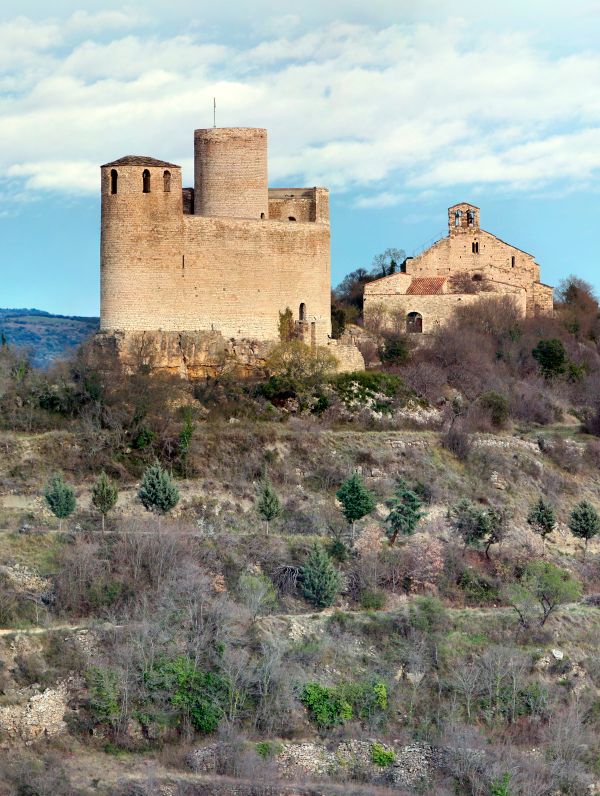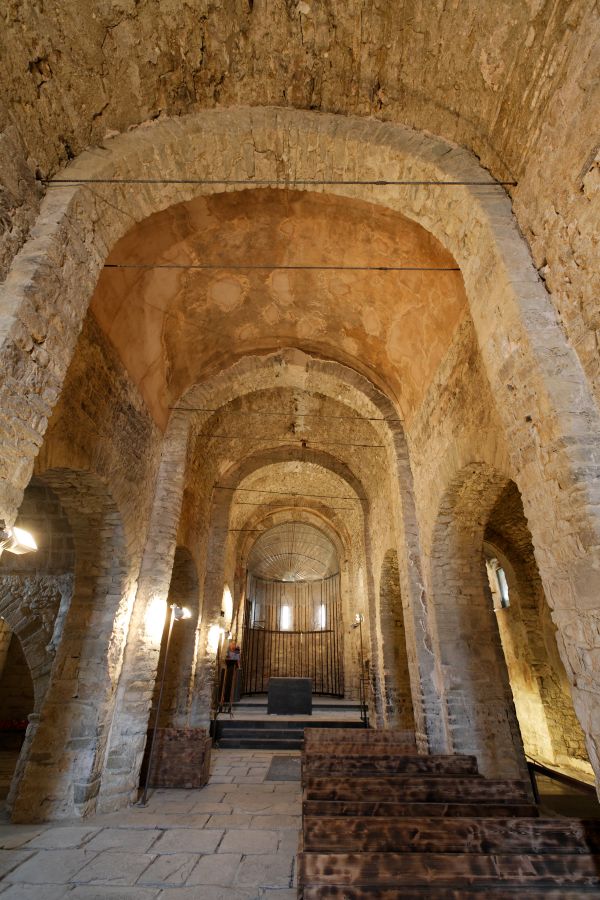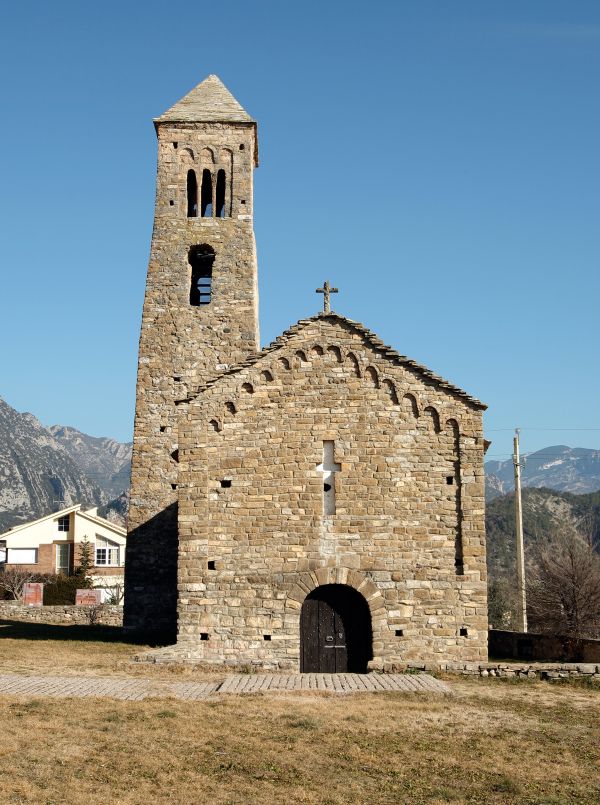High-perched castles, paintings hidden for centuries and even elves who can't stop working for even a second, though they are not responsible for the area's excellent Romanesque style, so we believe...
You will find these and other surprises upon crossing three of the largest counties in Catalonia: the
Alt Urgell,
Pallars Sobirà and
Pallars Jussà.
CONTROL OF THE TERRITORYIn the Serra del
Montsec, dominating the Conca de Tremp, on a hill you will find a luxurious medieval pair separated by only 100 metres. The
Castle of Mur and the ancient
Monastery of Sant Maria are two extraordinary examples of Romanesque religious and civil architecture.
If you cross the Noguera Pallaresa river, you will arrive at another
exceptional place:
Llimiana contains four 11
th century churches and the murals of an even older castle. In
Isona and Conca Dellà historic, architectural and paleontological heritage coexists: there are castles, churches, vestiges of the of Civil War and dinosaur remains that you can study in the open air or in the
Museu de la Conca Dellà (Museum of la Conca Dellà).
In the
Vall Fosca one must stop in the churches of
Cabdella and
Tower of Cabdella. Additionally, if you are interested in more recent history, a visit to the
Hydroelectric Museum can't be passed by.
FROM SNOW TO SALTThe Pallars Sobirà is the land of the
minairons, tireless labouring elves who have excavated the majority of the Pyrenean scree slopes. However, this county is also home to Romanesque jewels in València d’Àneu, Esterri and the Guingueta, with the vestiges of the canonry of
Santa Maria of Àneu at the front.
If you enter into Baix Pallars, it is worthwhile to stop and study the singular two-level apse of
Sant Serni de Baiasca and its
mural paintings, of which few are conserved
in situ in the Pyrenees. In
Gerri de la Sal you will find the
church of the ancient Visigoth monastery and the only preserved remnant of the ancient abbey.
ALT URGELL, CENTRE OF CHRISTIANITYIn the Seu d’Urgell is one of the
largest cathedrals in Catalonia:
Santa Maria d’Urgell is the only preserved fully Romanesque structure. The church of
Sant Climent de Coll of Nargó is more modest; the horseshoe arch picture windows on the first section of the bell tower are a testament to Islamic influence.
Visiting the
paintings of Estamariu and the monastery of
Sant Sadurní de Tavèrnoles in Anserall are two of the best way to finish this route. However, we are too close to
Andorra to not visit the small church of
Sant Miquel d'Engolasters and the interesting pre-Romanesque temple of
Santa Coloma.
Have we managed to inspire you? If you have any other interesting suggestions please send them to us on Facebook or publish your photos on Instagram with the hashtag #patrimonicultural. 

